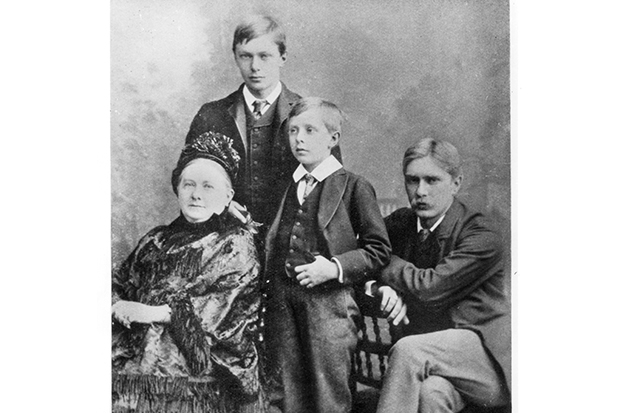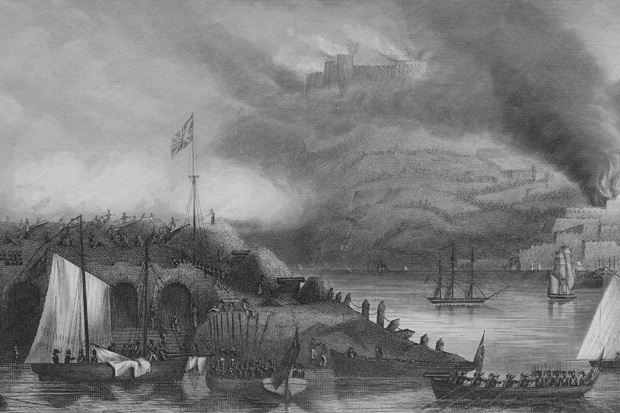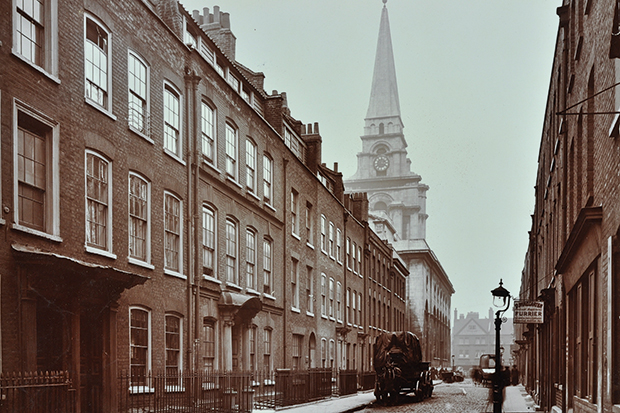One of David Cameron’s choices on Desert Island Discs, this book reminds us, was ‘Ernie (The Fastest Milkman in the West)’. The book does not, however, explain why Cameron chose the Benny Hill ditty. Consulting the online archive, I found the then leader of the opposition explaining that ‘when you’re asked to sing a song’, ‘Ernie’ was the only one to which he could remember all the words. Sue Lawley tested him, and Cameron responded: ‘You can hear the hoof beats pound as they race across the ground, the clatter of the wheels as they span round and round’. It’s a miracle the Notting Hill Set was ever seen as smart.And yet I know what Cameron means.
For our generation milkmen are an exercise in nostalgia. It seems incredible that a novelty song about one could reach the top of the charts, but then it seems incredible that the job existed in the first place. In the late 1960s there were 40,000 milkmen in this country: the figure now is a tenth of that. Before the milkie disappears completely, Andrew Ward — who rattled the pints himself — has documented the once-familiar creature and his world.
There are tactics for protecting your product from birds (one milkman covered the bottles with a fur collar resembling a cat), though the feathery thieves became less interested when full-fat gave way to semi-skimmed. There are tricks for warming yourself on frosty mornings, like putting a brick on your float’s accelerator and running alongside it (what could possibly go wrong?). And there are occasional stints as a super-hero: one guy on Merseyside put out a caravan fire with bottles of lemonade from his van. He increased their effectiveness by shaking them up first. Look me in the eye and tell me you wouldn’t love to do that.
Milkmen were heroes on a much more mundane level, too. One stopped every day to fit a customer’s false leg. Others found jars left out on the doorstep so they could loosen the lids. A 72-year-old in Burnley was done for supplying his elderly regulars with cannabis, while in the days of horse-drawn floats consideration extended to fitting the animals with rubber shoes. Sadly these sent the horses lame, so the experiment in noise-reduction had to end.
All of this in the face of customers who often made life difficult. ‘I’ve got three bottles in my right hand and three bottles in my left hand,’ remembers one operative, ‘and the dog’s owner says “he’s all right if you stroke him”.’ Collecting money could be tricky. One young girl answered the door, went away, returned and announced: ‘Mummy says she’s not in.’ Sometimes, however, the poverty was real. Sir Timothy Kitson, MP for Richmond in Yorkshire, was told by a milkman that he needed to take an empty bottle for occasions when two pints were shared between three families. This was 1978.
Even the bottles themselves had stories to tell. They once bore the message ‘the milk is thine, the bottle mine’ (can you imagine that today?), but customers still nicked empties to use as rolling pins. During the 1981 London riots dairies were asked to notify the Met about stolen bottles: a concentration of thefts could mean Molotov cocktails were being produced. Eventually the Tetra Pak carton took over, making its inventors, the Rausing brothers, the richest people in Britain.
No Milk Today isn’t going to win any prizes for prose style, and to get the most out of it you’ll probably need to have been a milkman yourself. (Sean Connery, perhaps, who once delivered to Fettes in Edinburgh, then went on to play the school’s most famous old boy.) But the rest of us can still bathe in the warm milk of reminiscence, contemplating a figure from history who was both fascinating and anonymous.
Perhaps milkmen are best summed up by the one in EastEnders: despite the actor who played him regularly visiting Express Dairies to keep his research up to date, the character didn’t get a line for his first ten years. When he did, it was: ‘This yours, squire?’
The post The milk of human kindness appeared first on The Spectator.
Got something to add? Join the discussion and comment below.
Get 10 issues for just $10
Subscribe to The Spectator Australia today for the next 10 magazine issues, plus full online access, for just $10.
You might disagree with half of it, but you’ll enjoy reading all of it. Try your first month for free, then just $2 a week for the remainder of your first year.














Comments
Don't miss out
Join the conversation with other Spectator Australia readers. Subscribe to leave a comment.
SUBSCRIBEAlready a subscriber? Log in